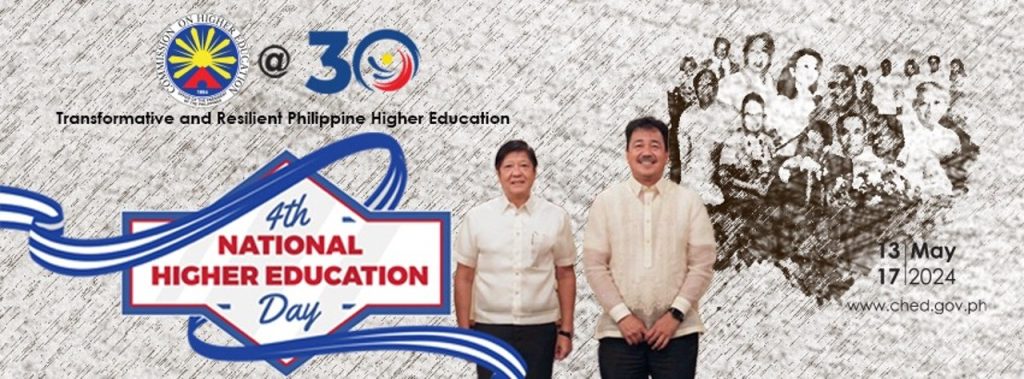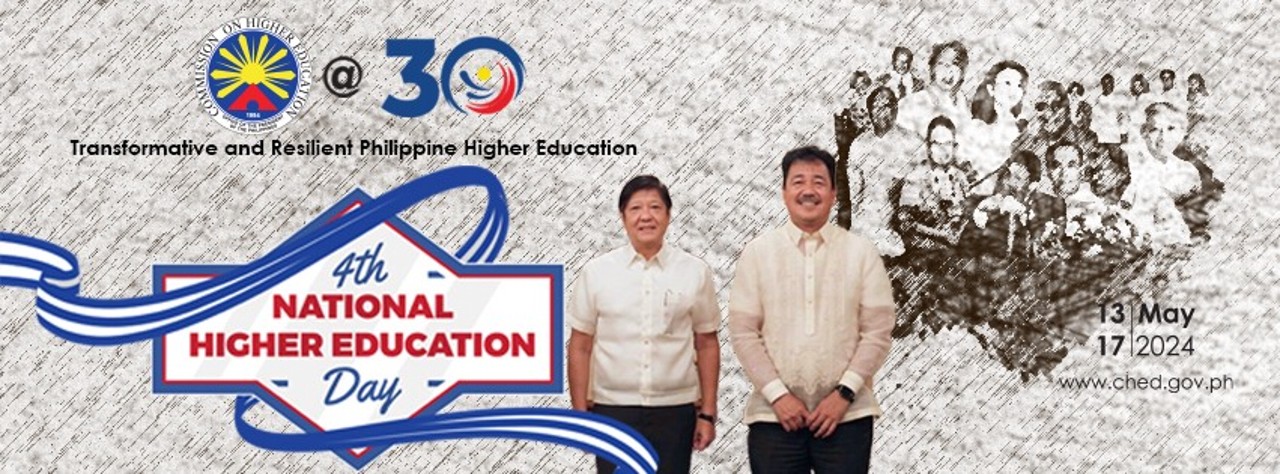The Commission on Higher Education (CHED) is a government agency in the Philippines responsible for overseeing the development and management of higher education institutions (HEIs) and programs. It is an agency primarily tasked with enhancing the quality and accessibility of higher education, ensuring that Filipino students receive opportunities for academic and professional advancement.
CHED offers cash and financial assistance programs to support students who face financial barriers to accessing higher education. These programs are designed to alleviate the financial burden on students from underprivileged backgrounds, promote educational equity, and cultivate a skilled workforce that can contribute to national development. Understanding these programs helps students and their families take advantage of available resources, ensuring that financial constraints do not hinder educational and career opportunities.
Types of CHED Financial Support Programs
When discussing CHED’s support programs, it’s essential to distinguish one type from the other as each one serves different purposes and targets different groups of students across different fields of study and demographics. The CHED programs are generally classified as follows:
- CHED Scholarships: These are awarded primarily based on academic merit, with the goal of supporting students who have demonstrated exceptional academic performance.
- Eligibility: Often targeted at students who meet high academic standards, though some programs may also consider financial need or special circumstances (e.g., students with disabilities or those from marginalized groups).
- Benefits: Typically covers tuition fees, provides stipends for living expenses, and may include additional allowances for books, transportation, or connectivity.
- CHED Financial Assistance: These are generally designed to provide support to students who may not meet the academic requirements for scholarships but still need financial help to pursue higher education. These programs aim to make education accessible to a broader range of students.
- Eligibility: Generally focuses on students from low-income families, students with disabilities, or those facing significant financial hardships.
- Benefits: May include partial or full coverage of tuition fees, stipends, and allowances similar to scholarships, though the amounts might be lower or more conditional.
- CHED Grants: Grants are typically provided to support specific projects, research initiatives, or innovation activities within higher education institutions. They are often aimed at enhancing academic research, improving educational facilities, or developing specific sectors like agriculture or technology.
- Eligibility: Usually granted to institutions, faculty, or researchers rather than individual students, although some programs may fund students working on research projects.
- Benefits: Grants often provide substantial funding for research activities, extension projects, or institutional improvements. They may cover expenses such as equipment, research materials, and operational costs associated with the project.
The CHED financial assistance programs usually come in either one of these forms. These programs target a range of beneficiaries—from medical students and agricultural scholars to research initiatives—and are meant to offer financial support and scholarships to foster education and professional development in various fields.

The various CHED Financial Assistance Programs are as follows:
1. Cash Grant to Medical Students Enrolled in State Universities and Colleges (CGMS-SUCs)
This program provides financial assistance and tuition subsidies to medical students enrolled in selected State Universities and Colleges (SUCs) offering the Doctor of Medicine program. It aims to ease the financial burden on aspiring doctors by offering financial support throughout their medical education. The program is jointly implemented by the Commission on Higher Education (CHED) and the Department of Budget and Management (DBM).
Purpose: To provide tuition fee subsidies and financial assistance to all medical students enrolled in identified SUCs offering the Doctor of Medicine Program.
Benefit, amount, and other terms:
- Covers all Filipino medical students, both new and continuing.
- Participating SUCs include:
- Bicol University
- Cagayan State University
- Mariano Marcos State University
- Mindanao State University
- University of Northern Philippines
- University of the Philippines Manila College of Medicine
- University of the Philippines Manila School of Health Sciences
- West Visayas State University
2. Stipendium Hungaricum Scholarship Program
The Stipendium Hungaricum (SH) scholarship program is established by the Hungarian Government to promote the internationalization of Hungarian higher education. It aims to attract top foreign students, including Filipinos, to pursue quality education in Hungary while building professional and personal connections.
Purpose: To provide international students with access to high-quality education in Hungary and promote cross-cultural academic exchanges.
Benefit, amount, and other terms:
- Free tuition for the entire study period.
- Monthly stipend.
- Accommodation assistance.
- Health insurance.
- Open to applicants in the following priority areas:
- Agriculture and sustainable development
- Medicine
- Water management engineering and hydrology
- Architecture and protection of natural heritage
- Natural sciences
- Environmental studies
- PhD applicants can choose any area/field of study.
- Airfare is not covered.
3. CHED Merit Scholarship Program (CMSP)
The CHED Merit Scholarship Program (CMSP) supports academically talented students, especially those from underprivileged backgrounds, persons with disabilities, and dependents of solo parents. The program is designed to help these students pursue undergraduate studies in CHED-recognized priority programs.
Purpose: To provide financial assistance to deserving Filipino students from special groups for their undergraduate education.
Benefit, amount, and other terms:
- Covers tuition and other school fees (TOSF).
- Monthly stipend for living expenses.
- Book/connectivity allowance per semester.
- Full and partial scholarships available for students in both private and public higher education institutions.
4. CHED Scholarship Program for Future Statisticians (ESTATISTIKOLAR)
This program aims to address the shortage of statisticians in the Philippines by providing scholarships to students pursuing degrees in Statistics or Applied Statistics. It targets underprivileged groups, persons with disabilities, solo parents, senior citizens, and Indigenous Peoples.
Purpose: To increase the number of trained statisticians in the Philippines and provide financial support to deserving students pursuing degrees in statistics.
Benefit, amount, and other terms:
- Covers TOSF.
- Monthly stipend for living expenses.
- Book/connectivity allowance per semester.
- Open to all qualified Filipino incoming fourth-year students.
5. Scholarship Program for Coconut Farmers and their Families (CoScho)
The CoScho scholarship program is designed to provide educational opportunities to coconut farmers and their families, aiming to raise social equity and alleviate poverty. The program also seeks to enhance agricultural productivity and modernization in the coconut industry by educating the younger generation.
Purpose: To provide quality education to coconut farmers and their dependents, thereby improving the coconut industry’s productivity and modernization.
Benefit, amount, and other terms:
- Stipend: Php 35,000 per semester, Php 70,000 per academic year.
- Book allowance: Php 5,000 per semester, Php 10,000 per academic year.
- Thesis/OJT allowance: Php 75,000 per academic year.
- One-time attendance in a local conference/fora: Php 10,000.
- One-time laptop allowance: Php 30,000.
- Return service: 1 year per year of scholarship in the Philippines, with prioritization for government or private entities related to the Philippine Coconut Industry.
6. Scholarship for Children and Dependents of Sugarcane Industry Workers and Small Sugarcane Farmers
This scholarship program provides financial assistance to the children and dependents of sugarcane industry workers and small sugarcane farmers. It is intended to support their undergraduate and graduate education in agriculture and related fields.
Purpose: To support the educational advancement of children and dependents of sugarcane industry workers and small sugarcane farmers, contributing to the development of the sugarcane industry.
Benefit, amount, and other terms:
- Undergraduate Program:
- Stipend: Php 100,000 per academic year.
- Book allowance: Php 10,000 per academic year.
- Thesis/OJT allowance: Php 75,000.
- One-time attendance in a local conference/fora: Php 15,000.
- Graduate Program:
- Tuition and fees: Php 60,000 per academic year.
- Stipend: Php 100,000 per academic year.
- Book allowance: Php 10,000 per academic year.
- Dissertation allowance: Php 100,000 (Doctoral).
- Thesis allowance: Php 75,000.
- One-time attendance in a local conference/fora: Php 15,000.
- Return service: 1 year per year of scholarship in the Philippines, prioritizing work in the coconut industry.
7. Agricultural Competitiveness Enhancement Fund – Grants-in-Aid for Higher Education Program (ACEF-GIAHEP)
The ACEF-GIAHEP aims to promote the development of agriculture and fisheries by increasing the number of graduates in relevant higher education programs. It supports students pursuing degrees in agriculture, forestry, fisheries, veterinary medicine, and related fields.
Purpose: To enhance agricultural competitiveness and development by providing financial support to students pursuing higher education in agriculture-related fields.
Benefit, amount, and other terms:
- Private HEIs:
- TOSF: Php 20,000 per academic year.
- Stipend: Php 35,000 per academic year.
- Book allowance: Php 5,000 per academic year.
- Total: Php 60,000 per academic year.
- SUCs/LUCs:
- TOSF: Free.
- Stipend: Php 35,000 per academic year.
- Book allowance: Php 5,000 per academic year.
- Total: Php 40,000 per academic year.
8. Research, Innovation, and Extension Grants-in-Aid (GIA) Program
The GIA Program provides competitive enabler grants to promote research, innovation, and extension projects among Philippine higher education institutions (HEIs). It aims to build a strategic research and extension portfolio through collaborative efforts in key thematic areas.
Purpose: To enhance research, innovation, and extension activities in Philippine HEIs, focusing on critical developmental areas that impact communities and industries.
Benefit, amount, and other terms:
- Maximum of Php 10 million for one (1) year research programs/projects.
- Maximum of Php 2 million for one (1) year extension programs/projects.
- Six thematic areas/platforms:
- Education for STEAM
- Environment, Disaster Prevention, Climate Change, and Energy
- Terrestrial and Marine Economy: Biodiversity and Conservation
- Smart Analytics and Engineering Innovation
- Health Systems
- Food Production and Security
9. Philippine-California Advanced Research Institutes (PCARI)
The PCARI Project enhances the skills and expertise of faculty and staff of Philippine universities through scholarships, training, and research partnerships with top research universities in California, USA. It focuses on two priority areas: information infrastructure development (IID) and health innovation and translational medicine (HITM).
Purpose: To improve the academic and research capabilities of Philippine universities by partnering with leading institutions in California.
Benefit, amount, and other terms:
- Scholarships and training opportunities for faculty and staff in the priority areas of IID and HITM.
- Research partnerships with California universities.
- Focus on translating basic scientific research into practical health applications and developing information infrastructure.
10. Student Monetary Assistance for Recovery and Transition (SMART) Grant
The Student Monetary Assistance for Recovery and Transition (SMART) program offers financial support to deserving students, easing educational expenses during tough times. This covers essential school needs like tuition and supplies, encouraging beneficiaries to pursue their goals. Ultimately, the SMART program fosters a conducive learning environment, promoting educational equity and nurturing future leaders. For this particular grant, the parents/guardians combined income must not exceed PHP 400,000, and the applicant should not be a recipient of any other government scholarship or educational assistance.
To apply for this grant, students must submit a filled-out application form along with supporting documents such as a certificate of enrollment and proof of indigency from the barangay.
Purpose: To provide cash aid to students from low-income families, enabling them to continue their education and achieve their academic goals.
Benefit, amount, and other terms:
- PHP 25,000 one time grant
Video: CHED Offers Financial Assistance Programs to Qualified Students
Learn more about the financial assistance offered by CHED and see if you qualify for any of them by watching this clip from GMA Integrated News:
Summary
In line with its mandate to support the development of HEIs and enhance the educational opportunities across various fields of study, CHED offers various financial assistance programs designed to alleviate financial barriers for Filipino students. By providing targeted support through scholarships, grants, and financial aid, these programs aim to promote educational equity, develop a skilled workforce, and contribute to national development and progress. Understanding and utilizing these resources can also significantly impact students’ academic and professional futures, ensuring that financial constraints do not limit their potential for success.
If you are a Filipino student in need of this kind of support, then explore and apply for CHED’s financial assistance programs today!
